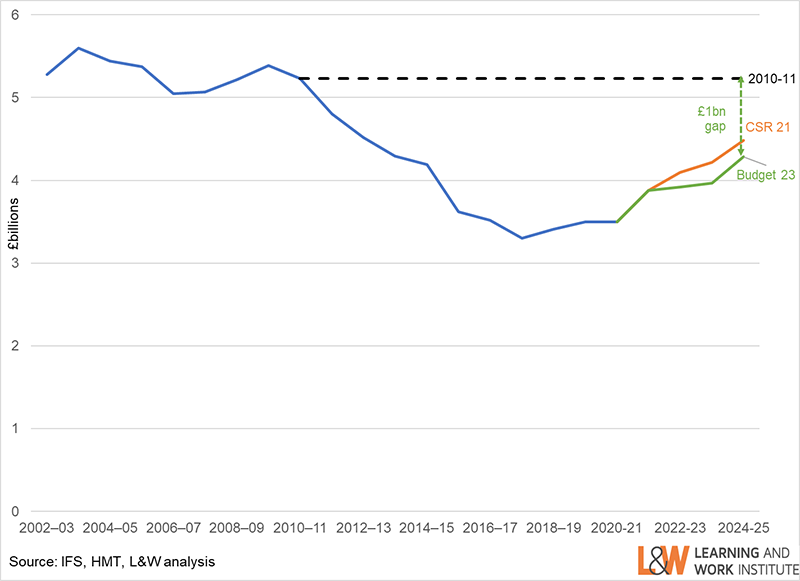Outcomes from apprenticeship end-point assessments (EPA) will feature in official government statistics for the first time from this summer, Ofqual has said, but there will be limits to what is published.
Speaking at the Annual Apprenticeships Conference this week, the regulator’s executive director for vocational and technical qualifications, Catherine Large, told delegates that new data on EPA outcomes will finally be made public.
“Later this year, you’ll see the EPA outcomes data included in our quarterly VTQ statistical release for the first time,” Large said from the main stage.
She used her speech to describe a “healthy market” of over 140 regulated end-point assessment organisations and said the body has completed the transition of external quality assurance (EQA) for 428 apprenticeship standards from other EQA providers, bringing their total to 588. EQA for remaining standards sit with the Office for Students and IfATE, Large said.
“Together we are achieving full market coverage and a new quality bar has been set,” she said.
The marketplace for end-point assessment organisations has grown but it has not yet been possible for apprentices and employers to compare the outcomes of the apprenticeship standards they assess. Ofqual has been collecting this data for four years.
Steve Walker, Ofqual’s associate director for apprenticeships and external quality assurance, gave more detail at the conference on what to expect from the first publication of EPA outcomes data.
The stats release, which is scheduled for “between June and July” will report “end-point assessment delivery figures and outcomes distributions”.
It is anticipated that the data will show how grade profiles for apprenticeship standards vary across different assessment organisations. Users should also be able to use the data to compare outcomes by assessment methods, for example computer-based assessments, paper-based, remote or face to face.
FE Week has since learned that there will be limits on what Ofqual will publish this summer.
Ofqual has said that it will only publish outcome distributions where an apprenticeship standard has five or more end point assessment organisations, and 500 or more total EPAs in one year. This is because “statistics could be misleading if computed for small groups of outcomes”.
This leaves open the possibility that smaller EPA organisations and those where there are only a few delivering against a standard, will have their outcomes data missing from public view.
Ofqual told FE Week that they will “provide different breakdowns of the figures” but was unable to elaborate further at the time FE Week went to press.

